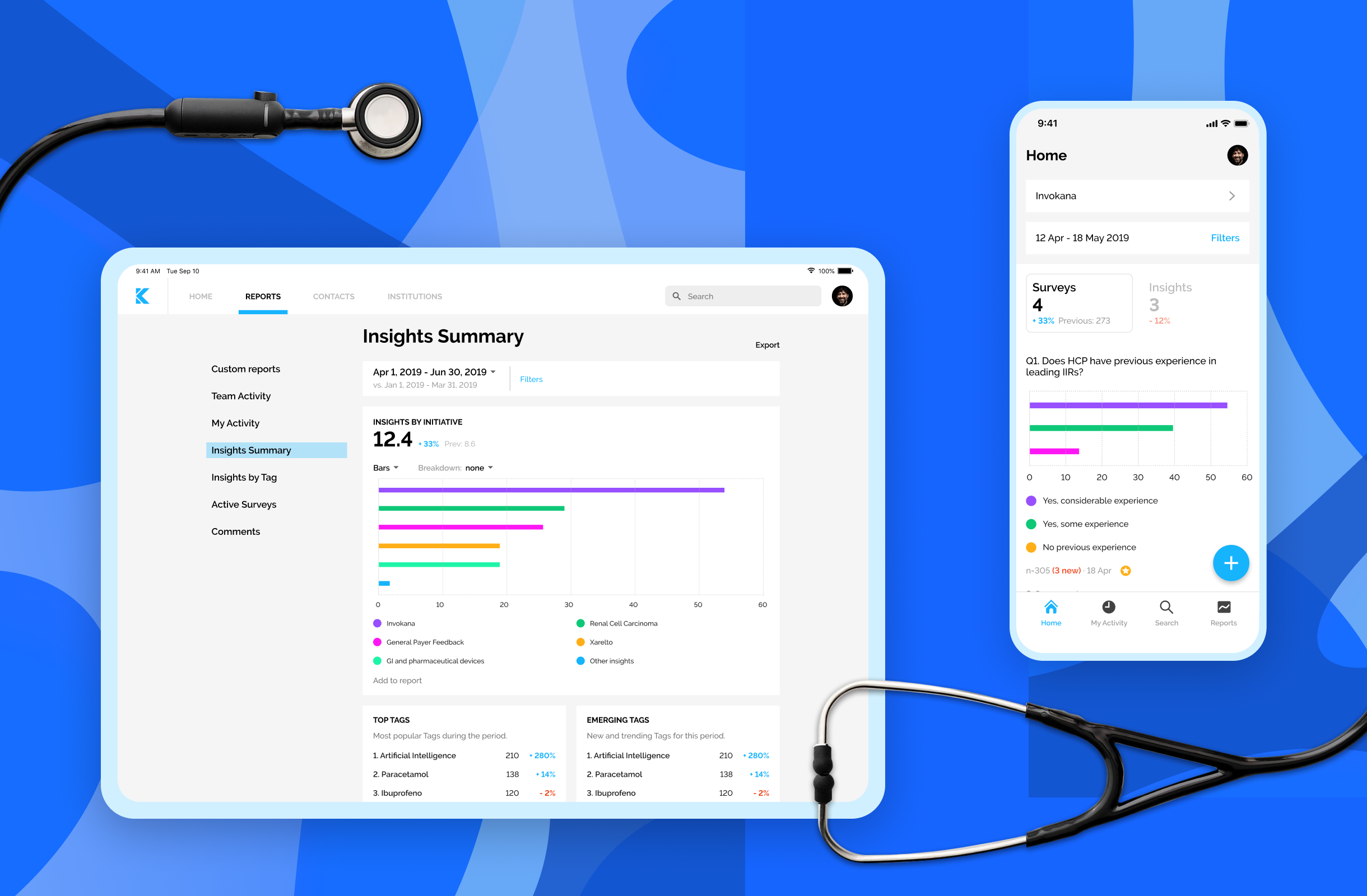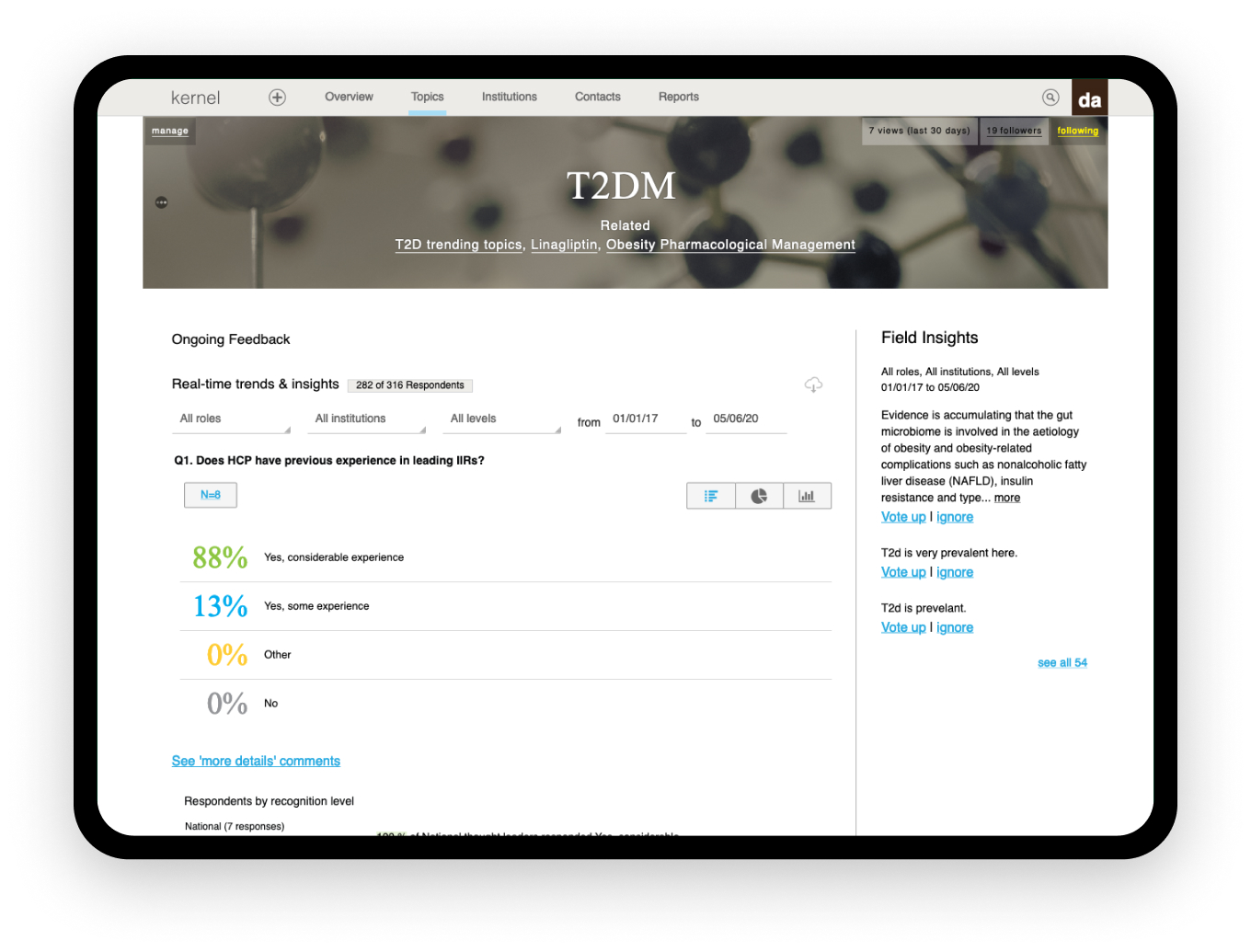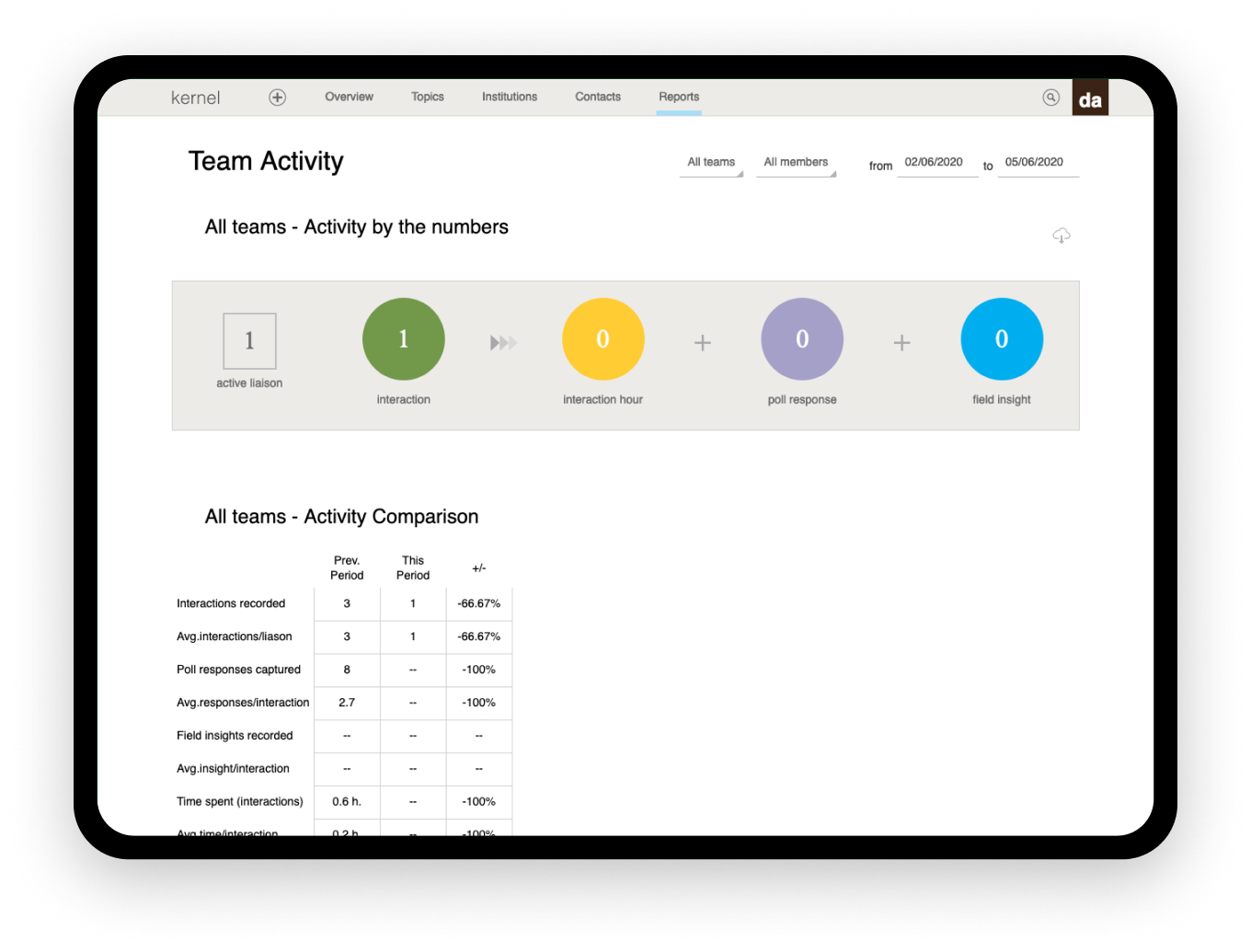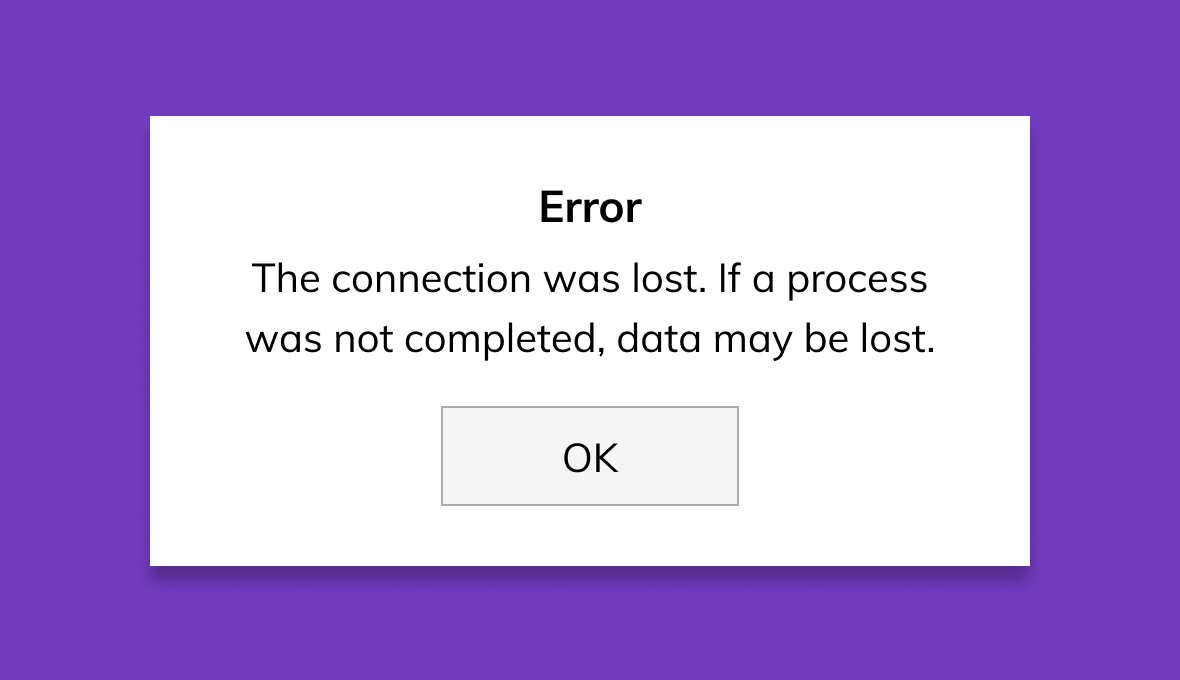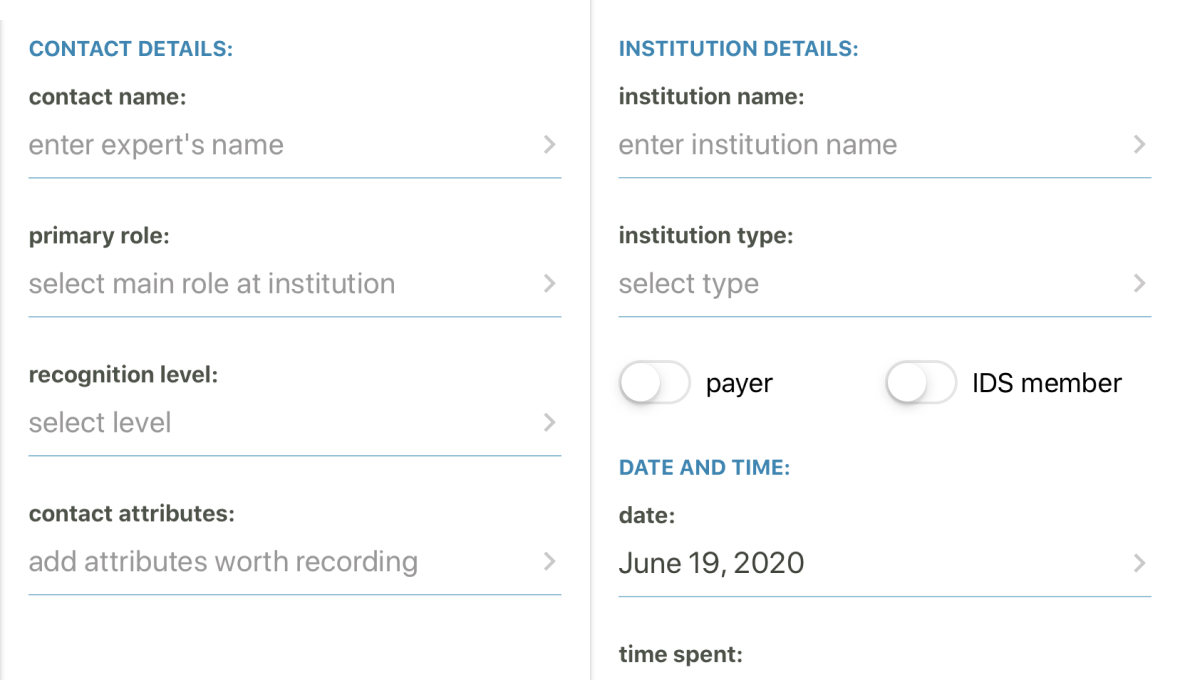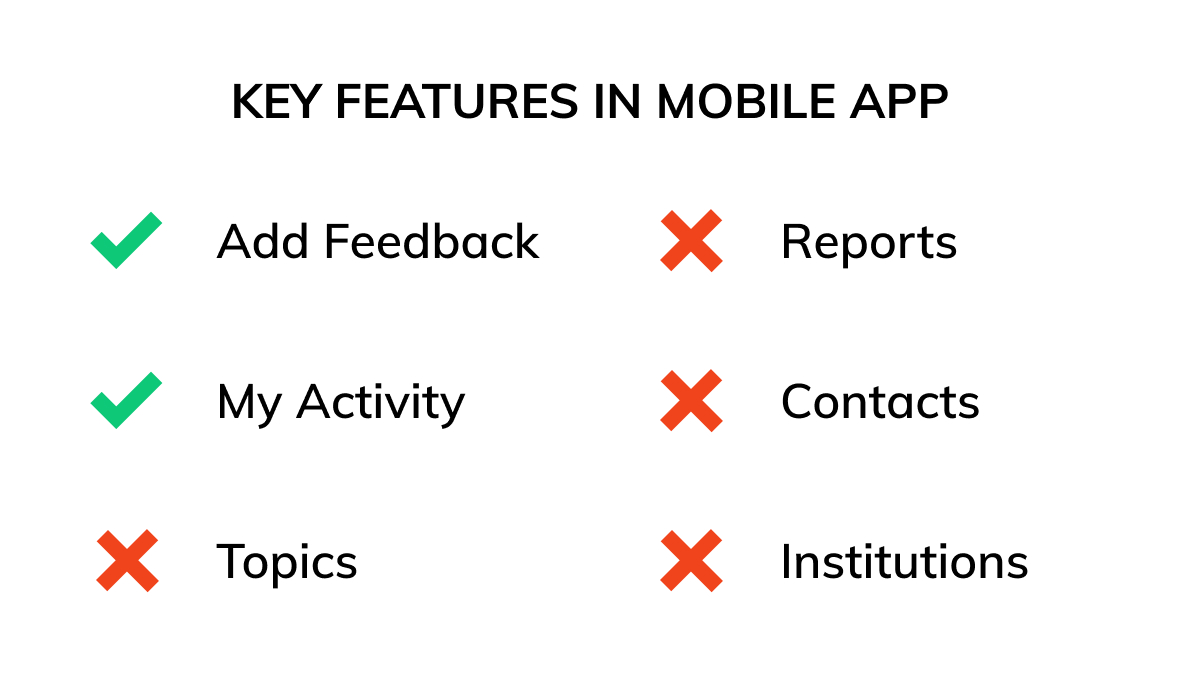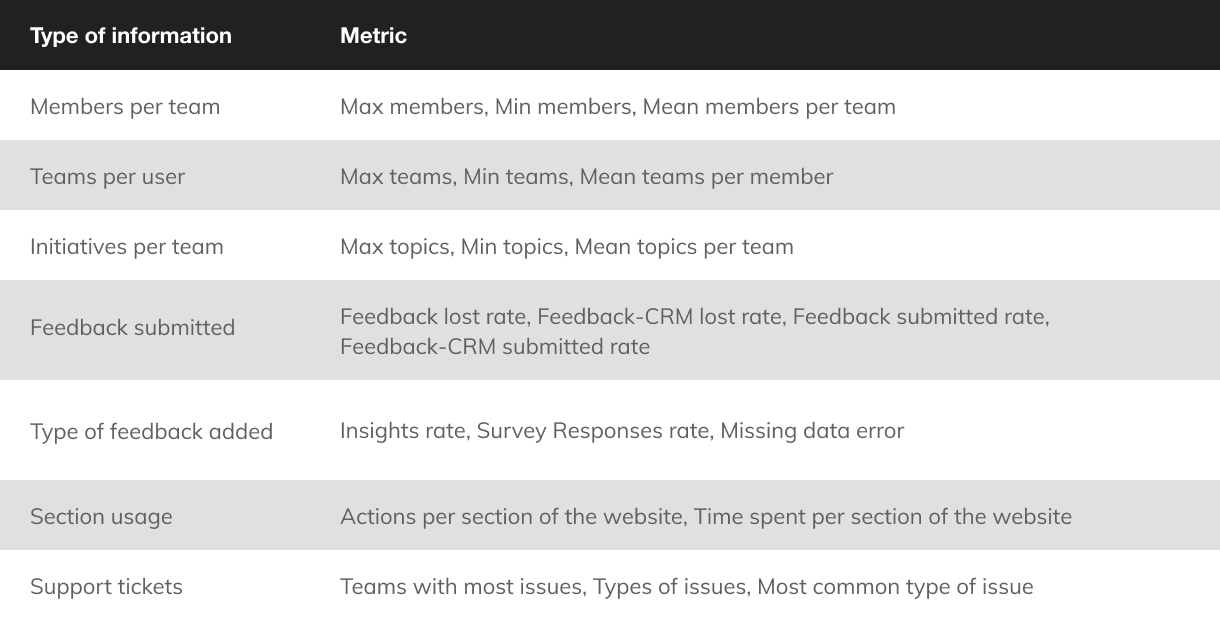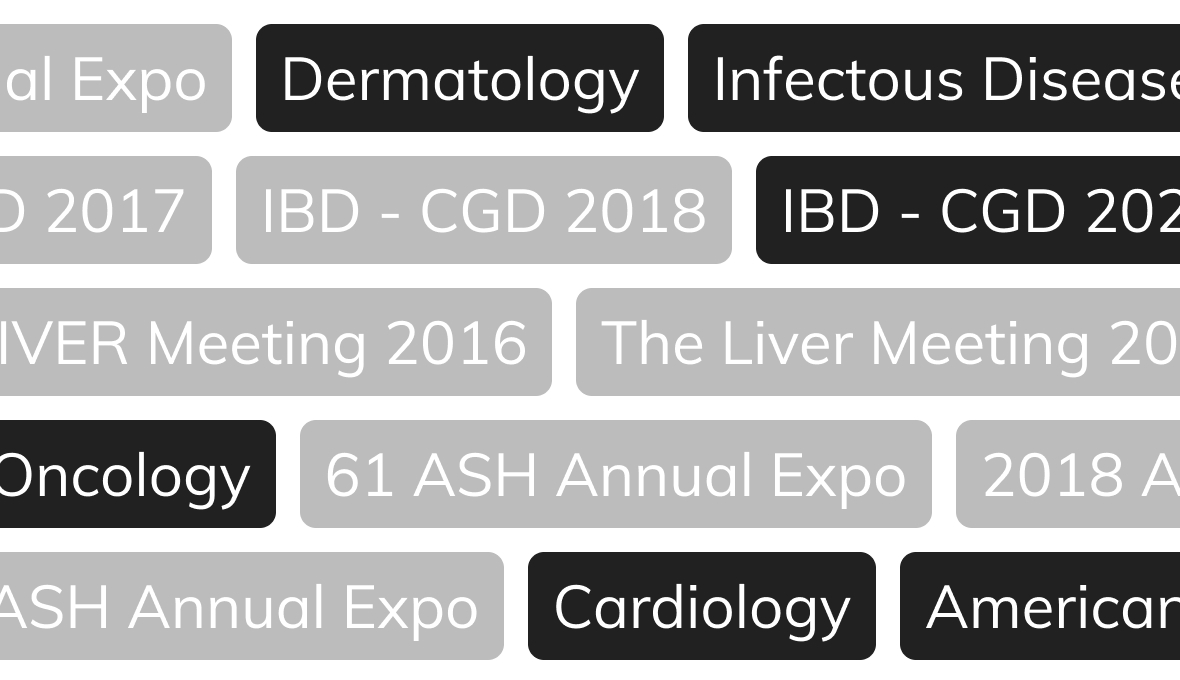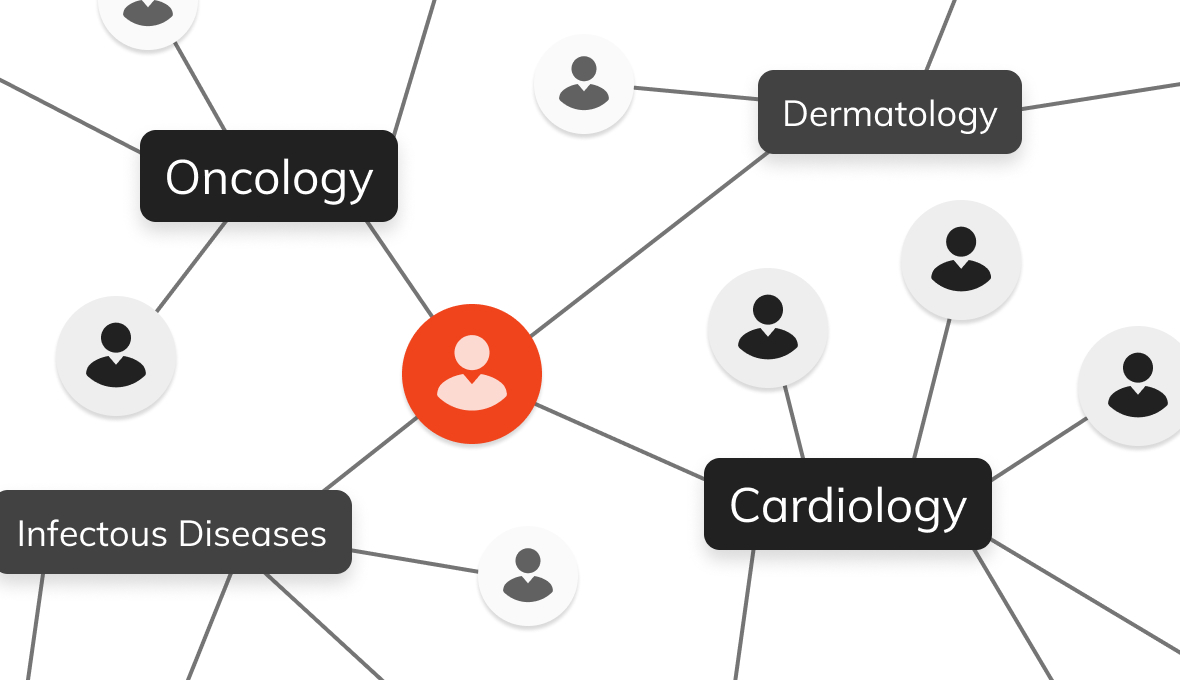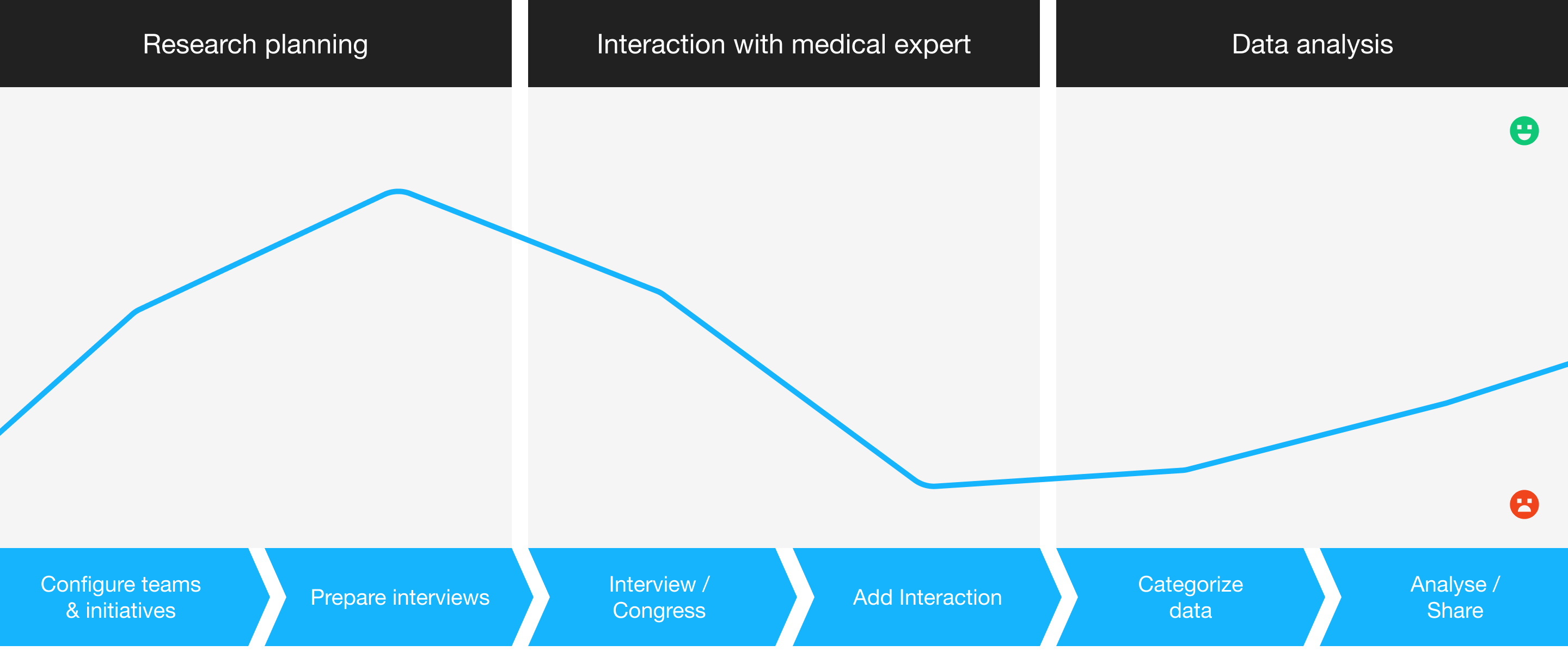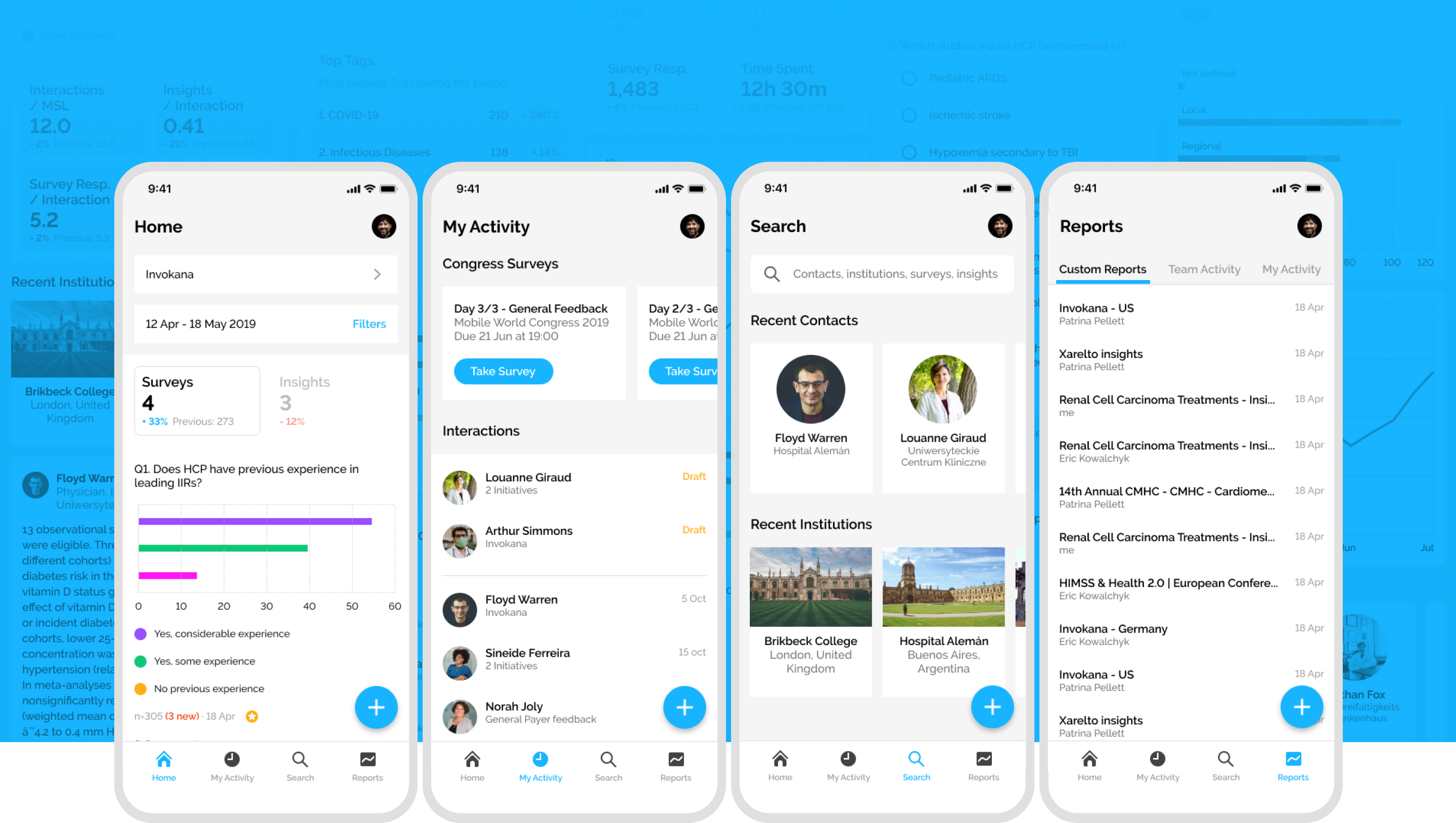Transform Medical Insights into Action
Kernel helps to analize feedback from healthcare professionals about treatments and diseases
so that pharmaceuticals can improve their products.
In April 2019, it had receded to an outdated and disorganized slew of features that made the
experience slow and complex to use. This is the story of how I was part of an ambitious project
to recreate Kernel.




